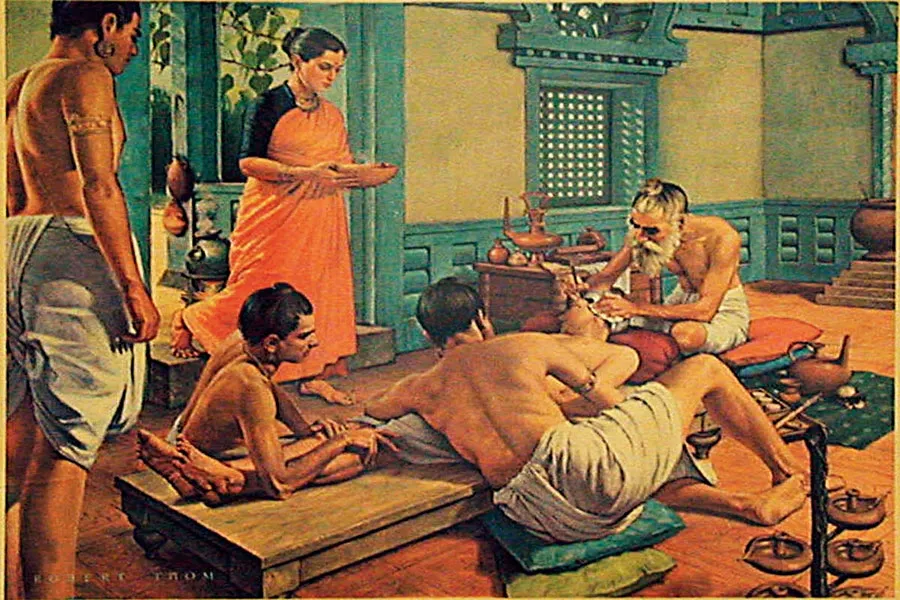Have you ever wondered how was the discovery of insulin for diabetes treatment?The doctor, writer and disseminator @Nopanaden explains it to us and will not leave you indifferent:
In Toronto, 1921, Mr. Thompson watched his 14 -year -old son.Leonard faded.His illness was a death sentence.Someone knocked on the door.- Mr. Thompson, good morning - he heard - my name is Frederick Banting, he is Charles Best.We believe to be able to help Leonard.
This is the story of a sick son and a father who accepted desperately.Without knowing Leonard that time conspired in his favor.Without knowing his father that chance sometimes knows about medicine.Without knowing that eight weeks are more than two months to change a life.
Leonard's disease was as old as man.Described in the second century A.D. by Capadocia Areteo as a process in which the sick poured their body through the urine.Consumed.EmptyDiabetes was the name they applied.
In 1921 no treatment was available.The only approach was to modify the diet until a safe death after entering a coma.Leonard was diagnosed in December 1919. From 1919 to 1921 work, persistence and a certain point of genius made his own.
In 1920, also in Toronto, the renowned professor John James Rickard Macleod had space and media for research.Aware of their limitations, something important, opened the door to young people with ideas.Thus, Mr. Banting arrived from London with a peculiar proposal.
Frederick Banting felt a great interest in finding that mysterious substance that somehow controlled sugar levels in the body.It was influenced by the work of researchers recognized today.Palul Langerhans, Joseph von Mering and Oscar Minkowsky.
The reading by Banting of a book published by Moses Barron years before about the relationship of the findings of these authors and diabetes acted as a trigger.
Banting first explained how in 1869 Langerhans had found small islands inside the pancreas.He also described unknown function juices that arose from that cell accumulation.Langerhans islets showed up in society.
Twenty years later Joseph von Mering and Oscar Minkowsky accidentally discovered that after removing the pancreas to dogs there was a clinical picture similar to diabetes.
Banting, felt that in the sum of these findings the answer could be.He had no resources or laboratory but either shy to ask Macleod to give them to them.Nothing more without shame than a guy formed with a good idea.
Macleod had to intuit something different in Banting's offer and made a deal with him.He gave him a laboratory of the university for eight weeks.He also provided him with the help of a physiologist of his trust: Charles Best.
Charles Best had the main function to help Banting with experimentation.Banting was good with ideas but did not have many experience in carrying them out.Pilot and co -pilot for an uncertain journey.
In May 1921 both began working in an animal model in two phases.In the first they linked cow pancreatic ducts.When obstructing the flow they thought the substance they were looking for would accumulate.Then they removed the set.They obtained the "isletina."
The second phase consisted of extracting the pancreas of dogs and waiting for diabetes to develop.After this they administered "isletina."And they observed that the clinic improved.The animals saw blood glucose descend.Banting and Best had confirmed their hypothesis.
Banting and Best began to collect response data on dogs.Thus the life of one of them came to prolong up to 70 days.The dog number 33. Marjorie.Banting and Best began to wonder if their extractIt could be used in people in the short term.
On December 20, 1921, Dr. Joseph Gilchrist, a friend of Banting, volunteers to take the pancreas extract.He drank a drink of the substance.Nothing happened and it seems that they even remained friends.
Macleod, given the response in dogs, knew that his intuition was turning online with his own name.Banting and Best had opened the door, furnished the house, award the bathroom and developed an idea with a view to a great horizon.Definitely.
Macleod expanded the team and incorporated James Collip, a biochemist that would help them purify insulin.The extract they obtained at that time was accompanied by a certain "mud", it was not pure.They knew there was gold, now they had to look for him in the mine.
On December 30, 1921 Banting, Best, Collip and Macleod go to the annual meeting of the American Physiology Society.They present their first work in relation to the findings: "The Beneficial Influences of Certain Pancreatic Extracts on Pancreatic Diabetes."
Days before this presentation, young Leonard Thompson entered the hospital.His illness made plans for the end of the game.
They coincided in the same place and at the same time:
• Four researchers.
• An idea with results.
• A patient with a terminal disease.
As we said, chance sometimes knows about medicine.
Thus in January 1922, while Mr. Thompson watched his son at the end of his life someone knocked on his door.- Mr. Thompson, good morning.My name is Frederick Banting, he is Charles Best, we believe we can help Leonard.
Leonard was prostrated in bed.Slim.Dehydrated.I could barely open my eyes or say the occasional word.His body was erased, slowly, with nothing to do except to look at how he was leaving.
They explained that they had a pancreas extract that had worked in similar situations.The father accepted.On January 11, 1922, 15 milliliters of isletina were infused to his son.Leonard only presented a local inflammatory reaction.Just nothing more.
In those days Collip was making his purified version of the extract.Seen the small effect and the reaction in the skin Banting and Best decided to wait.Leonard was still getting worse.On January 19 Collip had what he was looking for.On January 23 that search was administered.
Leonard opened his eyes.The blood glucose descended.Improved.The "isletina" did its job.They repeated the administration daily to adjust the doses.In the halls of the hospital that achievement was first rumor.Then it was inevitable comment.
Banting, Best and Collip collected the clinical data.They still did not intuit the magnitude of their achievement but they had to publish what was seen.The utility and effects of insulin had described.Although they still did not know.
Leonard continued to improve until they cheat diabetes.In the hospital six patients benefited from these results.Macleod, Banting, Best and Collip had changed the therapeutic paradigm of this disease.
Leonard left the hospital in February 1922 and could live until April 20, 1935. He died from diabetes related pneumonia.His father accompanied him for some of those years.Maybe congratulating each other to have met Banting and Best and heard them.
Macleod and Banting won the Nobel Prize in Medicine in 1923. Best got angry at Banting's absence and shared his economic award with him.Seeing this Macleod did it with Collip.Let's say Macleod and Banting ended up regular.
In 1972 the Nobel Foundation acknowledged that not having also given the prize to Best was a mistake.Trew late.
After the controversy with the Nobel, Collip went to Edmonton.There he continued working in endocrinology.He made importantDiscoveries in relation to another hormone: the parathyroid hormone.
Banting has a lunar and asteroid crater with its name as a tribute.When you look at the sky at night you have their memory doing orbit.Banting was born on November 14, 1891 in Canada.From there comes the date chosen for DMD (World Diabetes Day).



